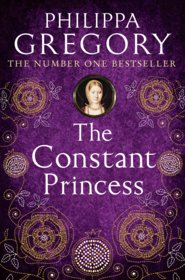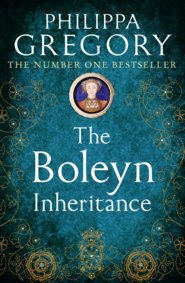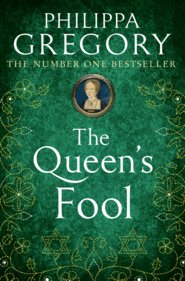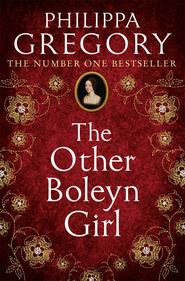По всем вопросам обращайтесь на: info@litportal.ru
(©) 2003-2025.
✖
The Complete Wideacre Trilogy: Wideacre, The Favoured Child, Meridon
Настройки чтения
Размер шрифта
Высота строк
Поля
We spoke little, for we were still country children. When the float bobbed and Ralph jumped to pull the line in, I had his cap ready to catch the fish as neatly and surely as in our childhood summer. Dead leaves, bracken and old twigs made a little fire under the trees by the river, and Ralph cleaned the trout and spitted it on a twig while I fed the little flames. I had eaten little for three days and the burned skin of the trout was salty and good. It was part raw, but whoever cares for such things when it is your own trout from your own river cooked on a fire of your own twigs? I washed my fingers and mouth in the rushing water and drank some of the sweet flood. Then I leaned back against the log and Ralph’s arms were around me.
Young ladies, girls of the Quality, are said to have painful childbirths, difficulty monthly seasons, fearful loss of virginity. Without one direct, honest word, Mama had ensured I knew that wifely duties included the making and bearing of an heir, and had convinced me that the task would be disagreeable and painful. Perhaps it is. Perhaps mating the man of your parents’ choice in the great wooden family bed, with the plans of two families on you, and your duty clear before you, is a painful insult to your body. All I know for certain is that to lie with the lad of your choice, like any free maid, under the Wideacre trees and sky is to become part of the old magic of the land, to hear the great heart of Wideacre thud in your ears, to feel the pulse of the earth.
We rolled together as inexpert, yet as graceful, as otter cubs; then the inexplicable, unexpected, unplanned sensations added and added and added up to a sudden crisis of delight that left me gasping and weeping into Ralph’s shoulder while he said, ‘Oh,’ as if he were extraordinarily surprised.
Then we lay in silence, clasped together as close as interlaced hands. And then, like the children we were, we fell asleep.
We woke, cold, cramped and uncomfortable. My back was patchy with the impress of twigs and leaves and Ralph had a red line across his forehead from pitching forward against the bark of the log. We huddled into our clothes and hugged for warmth as the quick springtime twilight lengthened the shadows of the bushes and the trees. Then Ralph cupped his hands for my foot and tossed me into the saddle. There was one wordless, warm look between us and then I turned my horse’s head and trotted for home. I felt badly in need of a hot bath and a huge meal. I felt like a goddess.
Those first wordless meetings set a pattern of pleasure that grew and grew all spring and early summer as the days warmed and the crops greened the dark fields. The lambs, the cows in calf and the sowing kept me out of Mama’s way with an excuse for absence almost every day. Once I had looked over the animals, or helped move the flocks up to the sweet grass of the spring downs, I could do as I pleased. Ralph knew some hidey-holes in the woods further afield than where we had played as six-year-olds, and on the few wet days we met at the old mill again. Above our shifting bodies, the little swallows hatched and were fed. I knew we had been lovers for weeks when the little hungry squeaks from the nest of mud grew louder and louder, and then one day they had flown. It was the only sign I noticed of passing time.
The transition from spring to high summer seemed to stand still that year to allow Ralph and me endless warm secret afternoons. The land itself conspired to hide us as the bracken on the common grew taller, and the undergrowth in the woods thicker and more lush. The weather of that wonderful spring smiled and smiled until Papa said he had never known such a season – that it must be magic to make the hay so early.
Of course it was magic. Through every warm day and through every dream at night, Ralph strode like a dark god of the earth making all of Wideacre glow with growth while our passion and our loving made the days sunny and long and the night skies full of the clearest stars.
We grew more skilled at pleasing each other but we never lost some sense of awe at each other’s mere presence. Just being there, under the swooping tall beech trees or curled up under the bracken, seemed a continual wonder to me. Anything we could imagine, any refinement of pleasure we could dream, we did with tenderness, with laughter, with breathless excitement. We would lie naked for hours touching each other all over, taking turns.
‘Is it nice if I touch you like this? Like this? Like this?’ I would ask while my fingers, face and tongue explored Ralph’s outstretched body.
‘Oh, yes. Oh, yes.’
We loved the excitement of near discovery as well. We met unplanned one afternoon when Ralph had come to the Hall with a hare and I was picking roses for Mama in the garden. He came from the kitchen at the back of the house and the gate clanged as he entered the garden. I turned, saw him and the basketful of roses dropped, instantly forgotten. Reckless of the windows of the house, which overlooked the garden, Ralph simply strode towards me, took my hand and led me to the summerhouse. He stood, back arched to carry my weight, and lifted me on to him, my silk dress creased and bunched between us, his head pressing down to kiss my breasts. We gasped in hasty incredulous pleasure, and Ralph set me down on my feet again. Then we laughed, and could not stop laughing at the sheer comic audacity of love-making in the garden in broad daylight before Mama’s parlour, before every window in the front of the house.
On my birthday morning in May, when I woke early with excitement to hear the birds singing and singing at the rosy dawn, my first thought was not of the expensive presents I could expect from Papa and Mama, but what Ralph might bring me.
I did not have long to wonder. While I splashed water on my face I heard a low, long whistle under my window and, wearing only my shift, I swung open the casement window to lean out and see Ralph, smiling with joy at seeing me.
‘Happy birthday,’ he called in a hoarse whisper. ‘I have brought you a present.’
I jumped down from the window seat and went to my dressing-table drawers for a ball of yarn. Like a fairy-tale princess, I dropped it from my window and Ralph tied a little withy basket carefully on the threads. I pulled it in as gently as if I were landing a salmon, and laid it on the window seat beside me.
‘Is it alive?’ I said in surprise when I heard a rustle of leaves inside the meshes.
‘Alive and scratching,’ said Ralph and held up a hand to show me a long red scratch along the back.
‘A kitten?’ I guessed.
‘Not for you,’ Ralph said dismissively. ‘Something more exciting.’
‘A lion cub,’ I said promptly and smiled to hear Ralph’s slow country chuckle.
‘Open it and see,’ he advised. ‘But open it carefully.’
I unfastened the little catch on the lid and peeped inside. A deep blue gaze met mine, a glimpse of ruffled, fluffed-out, angry feathers – a baby owl, rolled on his back with his sharp taloned feet pointing up at me in defence, a hoarse, cross squeaking coming from his open, red-tongued beak.
‘Oh, Ralph!’ I said, entranced. I glanced down; Ralph’s face was beaming with love and triumph.
‘I climbed the pine tree right up to the top for that one,’ he said proudly. ‘I wanted to give you something no one else could give you. And something from Wideacre.’
‘I shall call it Canny,’ I said, ‘because owls are wise.’
‘Not very wise,’ he said, teasing. ‘We nearly fell out of the tree when it scratched me.’
‘And I shall love it for ever because you gave it to me,’ I said, gazing at its mad, deep blue eyes.
‘Wisdom and love then,’ said Ralph, ‘and all earned by one little owl.’
‘Thank you,’ I said, with my heart in the words.
‘Coming out later?’ he asked casually.
‘I might,’ I said and beamed down at him. ‘I’ll be down at the mill straight after breakfast,’ I promised. Then I turned my head to listen for the noise of a maid stoking the kitchen fire. ‘I must go,’ I said. ‘See you at the mill, and thank you for my present.’
There was a small, disused store room among our outbuildings and there we decided to keep Canny. Ralph taught me how to feed the baby bird with raw meat wrapped in fur or feathers, and how to gently stroke its breast feathers so it hooded its blue eyes to doze.
That summer, Ralph would have climbed any tree, dared any risk for me. And I would have done anything for him. Or almost anything. One thing I would never do for him, and if he had been wiser, or less in love, he would have been warned by it. I would never take him into my papa’s bed. Ralph had a longing to lie with me there, in the great master bed, under the dark, curved wooden roof upheld by the four pillars as thick as pine trunks. But I would not. However much I loved the gamekeeper’s lad, he would never lie with me in the bed of the Squires of Wideacre. I evaded the question, but one day, when Papa and Mama were visiting in Chichester and the servants were on a half-day holiday, Ralph asked me directly to lie with him there, and was met with a direct refusal. His eyes went black with anger, but he said nothing and went alone to set snares in the woods instead. He soon forgot that one isolated refusal. A wiser man would have remembered and carried that reservation of mine through every day of that golden, timeless summer.
It was no timeless summer for Mama, who counted the days until the return of her golden boy from his school. She even made a little calendar, which she hung on the parlour wall, marked with the days of his term. Indifferently, I saw one day ticked off every evening. With little enthusiasm, and even less skill, I hemmed curtains and helped embroider the dragon counterpane for Harry’s new-style bedroom. And despite my ham-fisted efforts with the curly tail of the stupid beast, it was completed in time and spread on Harry’s bed to await the arrival of the emperor himself.
The first day of July, too good a day to waste at the parlour window listening for Harry’s carriage, saw us waiting for him. As soon as I heard hoofs on the drive I obeyed my instructions and called to Mama. She summoned Papa from his gun room and we stood on the steps as the carriage swept around the bend in the drive and drew up before the front door. Papa greeted Harry, who jumped boyishly from the carriage, without waiting for the steps to be let down. Mama surged forward. I held back, resentment, jealousy and some sort of fear in my heart.
Harry had changed in this last term. He had lost his rounded, puppy-fat face and looked like a clear, lean youth rather than a golden baby. He was taller. He greeted Papa with a frank smile of affection and beamed at Papa’s great bear-hug. He kissed Mama’s hand and cheeks with tenderness, but he did not cling to her. Then, and this was the greatest surprise of all, he looked around for me and his bright blue eyes lit up when he saw me.
‘Beatrice!’ he said, and jumped up the front steps in two long-legged strides. ‘How pretty you have grown! How grown up you are! Do we still kiss?’
I lifted my face to him with an easy smile in reply, but I felt my colour rise at the touch of his lips on my cheek and the soft prickle of the little growing hairs of his upper lip.
Then Mama swept upon him and took him into the house, and Papa talked loudly over her fluttering inquiries about the roads and the inns and when he had last dined, and they all left me alone on the sunny front door steps as if I had left the house and belonged nowhere at all.
But it was Harry who paused at the parlour door and looked back through the open front door and called to me. ‘Come in, Beatrice!’ he said. ‘I have a present for you in my bags.’
And my heart suddenly lightened to see his smile and the hand he held out to me. And I went with quick steps into the house and felt that perhaps Harry might not displace me, but could make my home a happier place for me.
However, as the days went on Harry’s charm wore a little thin. Every housemaid, every tenant’s daughter, had a smile for the good-looking young Master. His new confidence and awareness of himself won him friends everywhere he chose to ride. He was charming, and he knew it. He was handsome, and he knew it. We laughed that now I had to look up to him, for he was a head taller than me.
‘You will not bully me any more, Beatrice,’ he said.
He was still bookish: two of his trunks from school were filled with nothing but writings on philosophy, poems, plays and stories. But he had outgrown his childish illnesses and was no longer forced to spend all days indoors reading. He even made me feel ashamed that I had read so little. I might know more about the land than Harry ever could know, for I had spent years out on Wideacre and my heart was in it, as his never was. But that counted for little when Harry would toss off a reference to a book and say, ‘Oh, Beatrice! You must have read it! Why it’s in our library. I found it when I was about six.’
Some of his books were about farming, too, and not all of them were foolish.
This new Harry was the product of the natural growth of a boy nearing manhood. The ill health of his childhood was forgotten. Only Mama still worried about his heart. Everyone else saw his slimmer body, the strength in his arms, the brightness of his blue eyes and his conscious, sly charm with the pretty housemaids. But the principal influence was still Staveley. Staveley’s name was once more heard daily in Mama’s parlour and at the dinner table. Mama had her own opinions about Staveley and his gang. But she kept her head down, her tongue still and let her adored son talk and talk. He boasted about his role as Staveley’s right-hand man. The gang had grown more and more daring and its discipline more and more strict. Harry was second in command, but that had saved him no beatings from the demigod Staveley. Staveley’s swift rages, his harsh punishments, his tender forgiveness, were retailed to me in many confidences.
Harry missed his hero terribly, of course. Throughout his first weeks at home he wrote every day, asking for news of the school and Staveley’s gang. Staveley himself replied once or twice in an ill-formed and misspelled scrawl Harry treasured. And another boy wrote once or twice. His last letter told Harry he was now Staveley’s second in command. On that day Harry looked gloomy, took his horse out in the morning, and was late for dinner.
Yet however pleasant Harry could now be as a companion, with him at my side I was no longer free to slip away to meet Ralph by the river, on the common land or on the downs. As the days went on, I grew more and more impatient with Harry always at my side. I could not get rid of him. Mama wanted him to sing to her; Papa needed him to ride to Chichester, but Harry chose to go with me, while Ralph waited and waited and I burned up with desire.
‘Every time I order my horse from the stables, he has to go riding, too,’ I complained to Ralph in a snatched moment as we met by accident on the drive. ‘Every time I go into a room in the house he trails around after me.’












